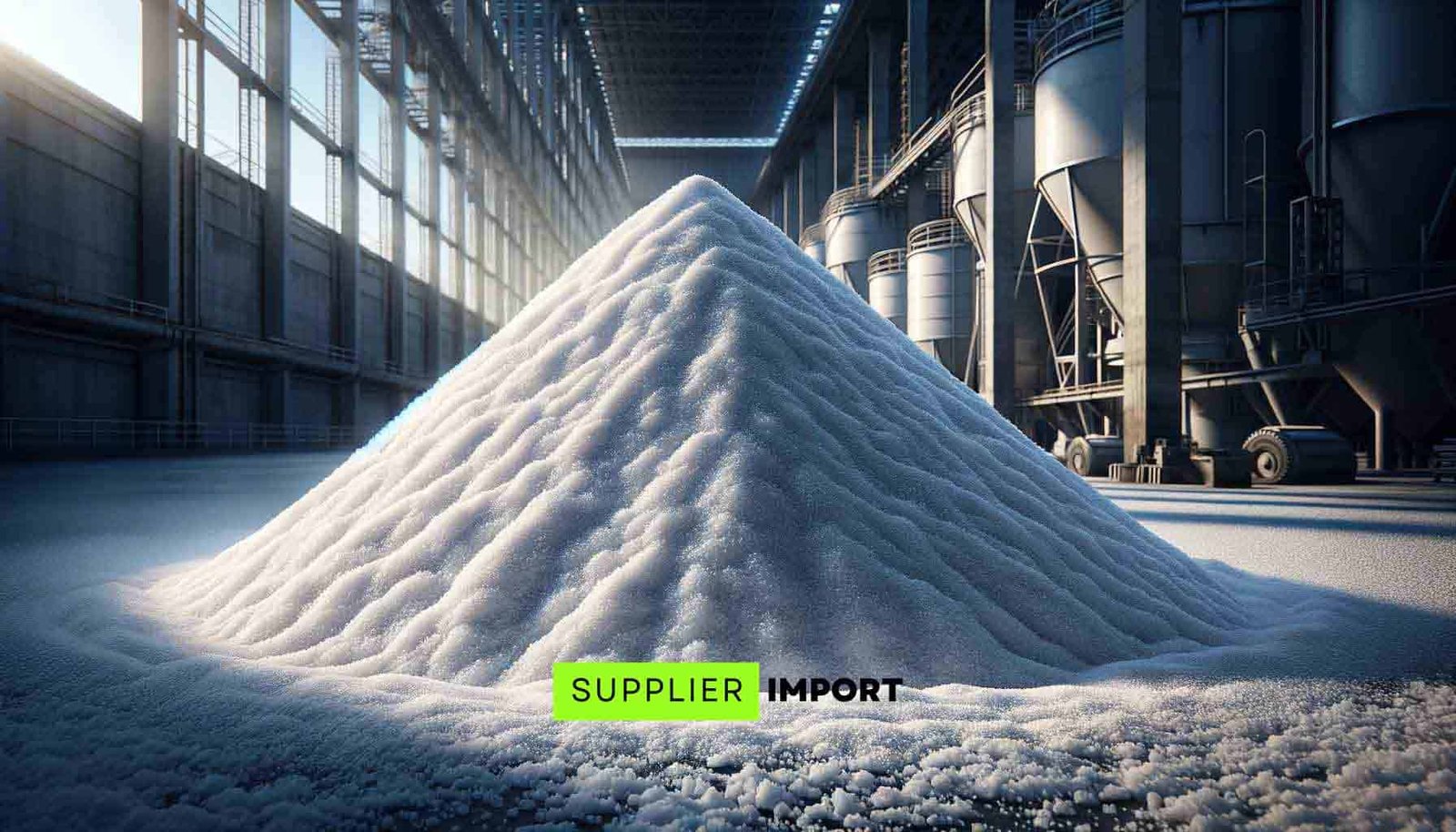In regions where snow and ice can cripple transportation and affect daily life, bulk salt serves as a crucial resource. This guide provides comprehensive insights into choosing the right supplier, understanding different types of salt products, and leveraging local options for your needs. Whether you’re a business looking for road salt or a homeowner in need of winter supplies, this article will help you make informed decisions about bulk salt.
Table of Contents
Understanding Bulk Salt
It plays a vital role in various applications, from road de-icing to water conditioning and industrial processes. It comes in several forms, each suited to specific needs. Bulk rock salt is commonly used to melt snow on roads, while other salt products are used in commercial and residential settings to manage water hardness or keep walkways safe during winter.
Unveiling Bulk Salt: A Multifaceted Powerhouse
Choosing the right salt product depends on your specific requirements:
- Rock Salt: The most cost-effective choice for melting ice on roads and highways.
- Treated Salt: Enhanced with magnesium chloride for faster and lower temperature melting.
- Solar Salt: Produced through the evaporation of seawater, ideal for water conditioning.
- Evaporated Salt: Produced by evaporating brine (saltwater), evaporated salt is further refined for various uses, including table salt and food additives.
Understanding these options will allow you to select the most suitable bulk salt for your needs, ensuring effectiveness and cost-efficiency.
The Wide-Reaching Impact of Bulk Rock Salt
Applications extend far beyond the kitchen pantry. Here’s a closer look at its diverse roles in different industries:
- De-Icing Roads and Walkways: Rock salt’s ability to lower the freezing point of water makes it essential for maintaining safe roads during winter.
- Water Softening and Purification: It plays a crucial role in water treatment facilities, helping remove hardness minerals and improve water quality.
- Agriculture: Salt is a vital component of fertilizers, enhancing soil structure and providing essential nutrients for crops. Additionally, it’s used as a natural de-icer for livestock feed troughs in colder climates.
- Food Production: From curing meats and enhancing flavors to preserving vegetables, It’s a cornerstone of the food industry. Different types of salt cater to specific culinary needs.
- Industrial Applications: Used in various industrial processes, including chemical manufacturing (chlorine production) and textile production (dyeing).
How to Choose Your Perfect Match Supplier?
Before you decide, keep these points in mind:
- Reliability and Reputation: Ensure the supplier has a strong track record.
- Product Range: Check if they offer the specific type of salt you need.
- Pricing: Compare Quotes to save money, this emphasizes the potential cost savings.
Locating a supplier nearby can reduce shipping costs and delivery times, which is particularly crucial during emergency weather situations.

Negotiating Price and Exploring Purchase Flexibilities
Pricing can vary significantly based on the type of salt, quantity, and supplier location. Many suppliers offer flexible purchasing options, including contracts and on-demand delivery, to accommodate different budget and usage needs.
Be aware of local and environmental regulations that may affect the purchase and usage. Some regions have restrictions on certain types of salts due to environmental concerns, especially related to waterways and wildlife.
Partnering with a Bulk Salt Supplier: A Win-Win Situation
Sourcing bulk salt directly from a dedicated supplier offers numerous advantages compared to relying on general retailers. Here’s why partnering with a reliable bulk salt supplier is a smart choice for your business:
- Cost-Effective Solutions: Bulk suppliers provide competitive pricing due to economies of scale. Purchasing larger quantities translates to significant cost savings compared to smaller, pre-packaged options.
- Consistent Quality and Reliable Supply Chain: Reputable suppliers prioritize quality control measures. You can be confident in receiving consistent product quality and a reliable supply chain to meet your ongoing needs.
- Access to a Variety of Salt Types and Grades: Suppliers offer a wider selection of salt types (rock salt, sea salt, evaporated salt) and grades (coarseness) compared to limited options in stores. This allows you to choose the exact salt variety that best suits your specific application.
- Expert Advice and Support: They often possess extensive industry knowledge and can provide valuable technical advice on choosing the right salt type and application methods.
Tips For Safety & Storage
Proper storage and handling of bulk salt are vital to maintain its efficacy. Store salts in a dry, covered area to prevent clumping and degradation. Safety measures should also be observed to avoid contamination and ensure that the salt remains effective for road treatment and other uses.
FAQs
Q: What is the best type of salt for de-icing?
A: Rock salt is typically the best and most economical choice for de-icing roads and walkways.
Q: How can I find best suppliers?
A: You can search online for local suppliers, Open Google Maps then type ” Bulk Salt Suppliers Near Me”.
Q: What are the storage requirements for salt to maintain its efficacy?
A: It should be stored in a dry, covered area to protect it from moisture, which can cause clumping and diminish its effectiveness. If possible, store the salt on a raised platform to prevent contact with ground moisture and ensure good air circulation around the salt.
Q: How can I ensure I’m getting a competitive price on bulk rock salt?
A: To ensure you are getting a competitive price, obtain quotes from multiple suppliers. Compare their prices relative to the salt type and quality offered. Also, consider long-term contracts which might offer price stability over time, especially during high-demand winter months.
Q: Are there environmentally friendly alternatives to traditional rock salt for de-icing?
A: Yes, there are several Eco-friendly alternatives to traditional rock salt, such as calcium magnesium acetate (CMA) and beet juice mixtures, which are less harmful to vegetation and concrete surfaces. These alternatives are biodegradable and pose less risk to wildlife and aquatic ecosystems.
Q: How does the quality of salt affect its de-icing capabilities?
A: The quality of salt, particularly its purity and grain size, directly impacts its effectiveness in melting ice. Higher purity salt will typically dissolve and begin working quicker than impure varieties. Finely ground salt begins melting ice faster but may require more frequent application, while coarser salt provides longer-lasting coverage but might act slower.
Q: Can bulk salt be used for both residential and commercial purposes?
A: Yes, bulk salt is versatile and can be used in both residential and commercial settings. Residential applications often include using salt for water softening and de-icing driveways and walkways. Commercially, it is used in larger-scale de-icing operations, manufacturing, and water treatment facilities.
Conclusion
Choosing the right supplier is crucial for cost and efficiency, especially in regions prone to icy conditions. By understanding the types of salts available and the benefits of working with local suppliers, you can ensure that your salt needs are met effectively and economically.


Leave a Reply